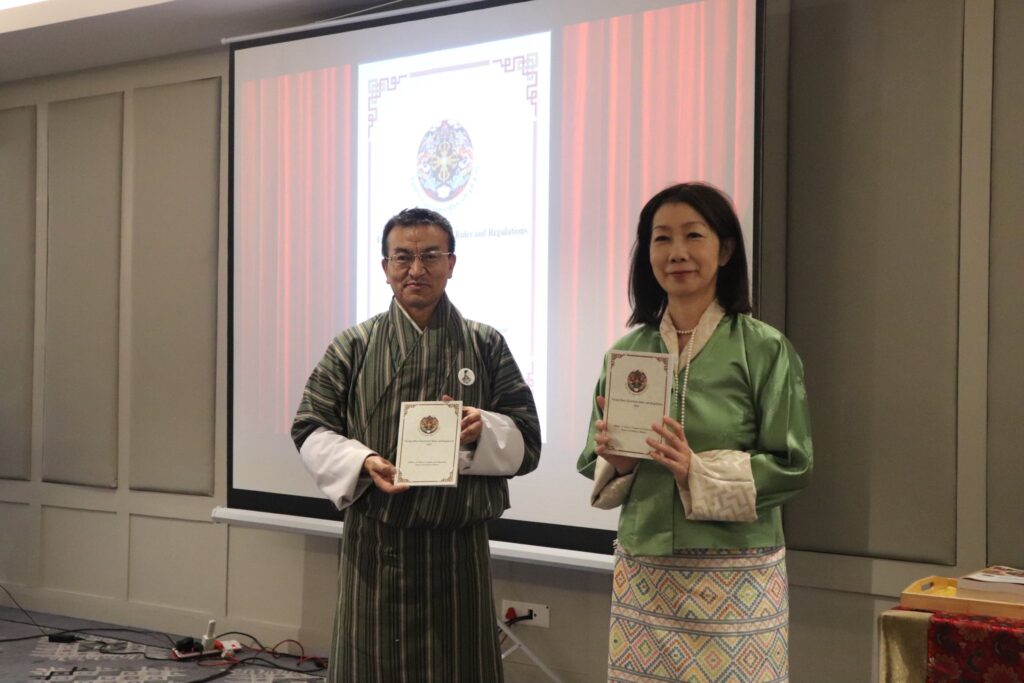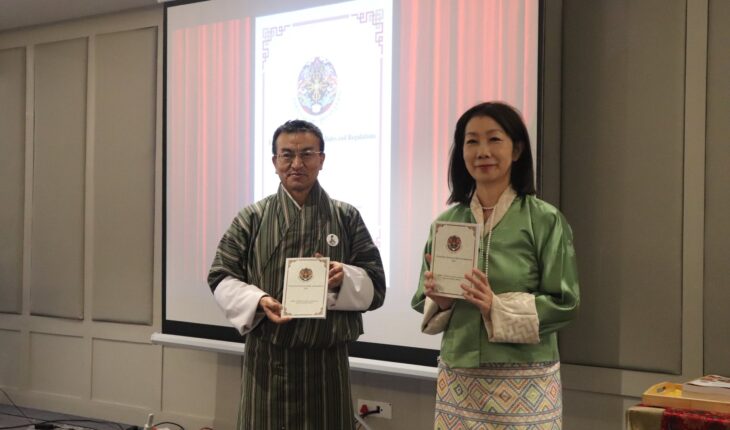
NGAWANG JAMPHEL
Thimphu
On 8th August, the Ministry of Industry, Commerce and Employment (MoICE) launched the Foreign Direct Investment (FDI) Rules and Regulations 2025, introducing a new framework to make doing business in Bhutan easier for foreign investors.
This single set of rules merges the earlier FDI Policy 2019 and FDI Regulations 2019 into one clear document, replacing the older, overlapping system that often-caused confusion.
The Minister for MoICE Namgay Dorji said that the revision reflects the changing global investment climate and is designed to position Bhutan as a competitive and attractive destination for foreign capital.
It also supports the country’s national development priorities and the long-term vision of becoming a High-Income GNH Economy by 2034.
The Minister also described the launch as a significant milestone, calling it a bold reform anchored in transparency, predictability, and efficiency.
He said the changes would strengthen investor confidence, encourage high-quality and sustainable investments, and contribute to Bhutan’s economic transformation.
The revision came after consultations with various government agencies and the private sector to identify the challenges faced by foreign investors and to find practical solutions.
One of the most important changes is the provision allowing FDI companies to lease state land, including land in industrial parks, for up to 30 years to establish their businesses.
The previous requirement that individual foreign investors must hold at least a 10 percent share has been removed, giving investors more flexibility and benefiting large-scale projects.
Foreign ownership in existing companies, which was earlier capped at 74 percent, is now allowed without specific conditions, as long as sector-specific limits are respected.
The old rule requiring investors to lock their foreign equity for three years after licensing has also been lifted, making it easier for them to expand or exit when needed.
To speed up the approval process, the time required to obtain a Foreign Direct Investment Registration Certificate (FDIRC) has been reduced from five working days to three.
Access to foreign exchange has been expanded, allowing FDI companies to use convertible currency and Indian Rupees from the Royal Monetary Authority (RMA) to purchase capital goods and cover operational expenses.
They are also free to repatriate dividends and capital without restrictions. Investor cards have been introduced to offer benefits not available under previous policies, including simplified route permits for up to three months or the duration of the investor’s stay.
The reforms also aim to make Bhutan a more welcoming place for industries that require specialised skills. The old rule requiring five local employees for every foreign worker has been removed, allowing companies to hire expatriates when there are no skilled locals available.
Another key highlight is the encouragement of downstream projects, particularly those involving venture capital investments in startups.
These investments will not be classified as formal FDI projects, meaning local startups can access foreign funding and expertise without undergoing the full FDI registration process.
The priority sector list has been reviewed and expanded, opening more areas to 100 percent foreign ownership.
It now includes Agriculture and Animal Husbandry, Manufacturing, Education, Health, Hotels and Resorts, Air Transport Services, Infrastructure, IT and IT-enabled Services, Waste Management, and Financial Services.
The list is now more flexible, allowing activities related or similar to the listed sectors to be considered for priority status.
At the same time, the negative list, where no foreign investment is allowed, has been made clear. It includes news media, wholesale and retail trade, micro trade, mining for sale of raw minerals, mineral processing limited to crushing and powdering, hotels rated three-star and below, general health services, industries without a valid certificate of origin, real estate businesses, and activities prohibited by the government.
The Minister explained that these changes were necessary because the old system created confusion through duplicated rules and slow processes.
Many investors had raised concerns about lengthy approvals, restrictive ownership conditions, and limits on hiring skilled foreign workers.
By removing the 10 percent minimum shareholding rule, lifting the three-year equity lock-in period, and shortening the FDI registration timeline, the government is signalling a more open and investor-friendly environment.
The streamlined process and expanded access to foreign exchange are expected to make Bhutan more competitive in attracting high-quality investments.
The new rules not only aim to bring in large-scale foreign investment but also to support local entrepreneurship. By enabling startups to receive venture capital without the burdens of full FDI procedures, Bhutan hopes to encourage innovation and create more opportunities for young entrepreneurs.
This approach is expected to strengthen the private sector and diversify the economy, aligning with the nation’s goal of sustainable and inclusive growth.
Overall, the FDI Rules and Regulations 2025 mark a shift toward a simpler, clearer, and more flexible investment climate. They address long-standing concerns from the business community while maintaining safeguards through the negative list.
With its updated policies, faster processing times, and investor-friendly provisions, Bhutan is aiming to position itself as a serious player in the global investment market.
As Lyonpo Namgyal Dorji emphasised at the launch, these reforms are not just administrative changes—they are part of a larger vision to attract responsible investment that will help Bhutan achieve its ambitious economic and social goals.




